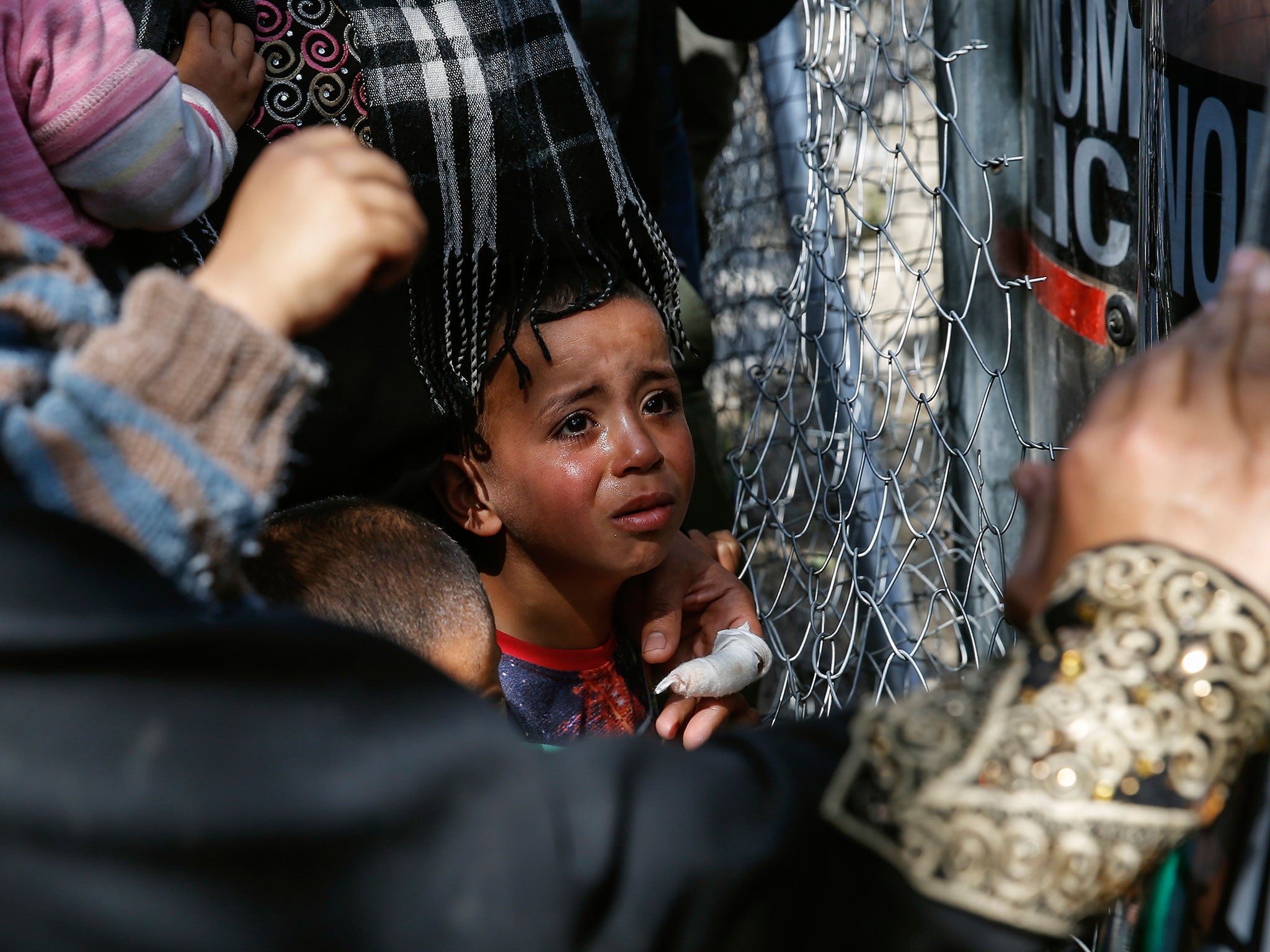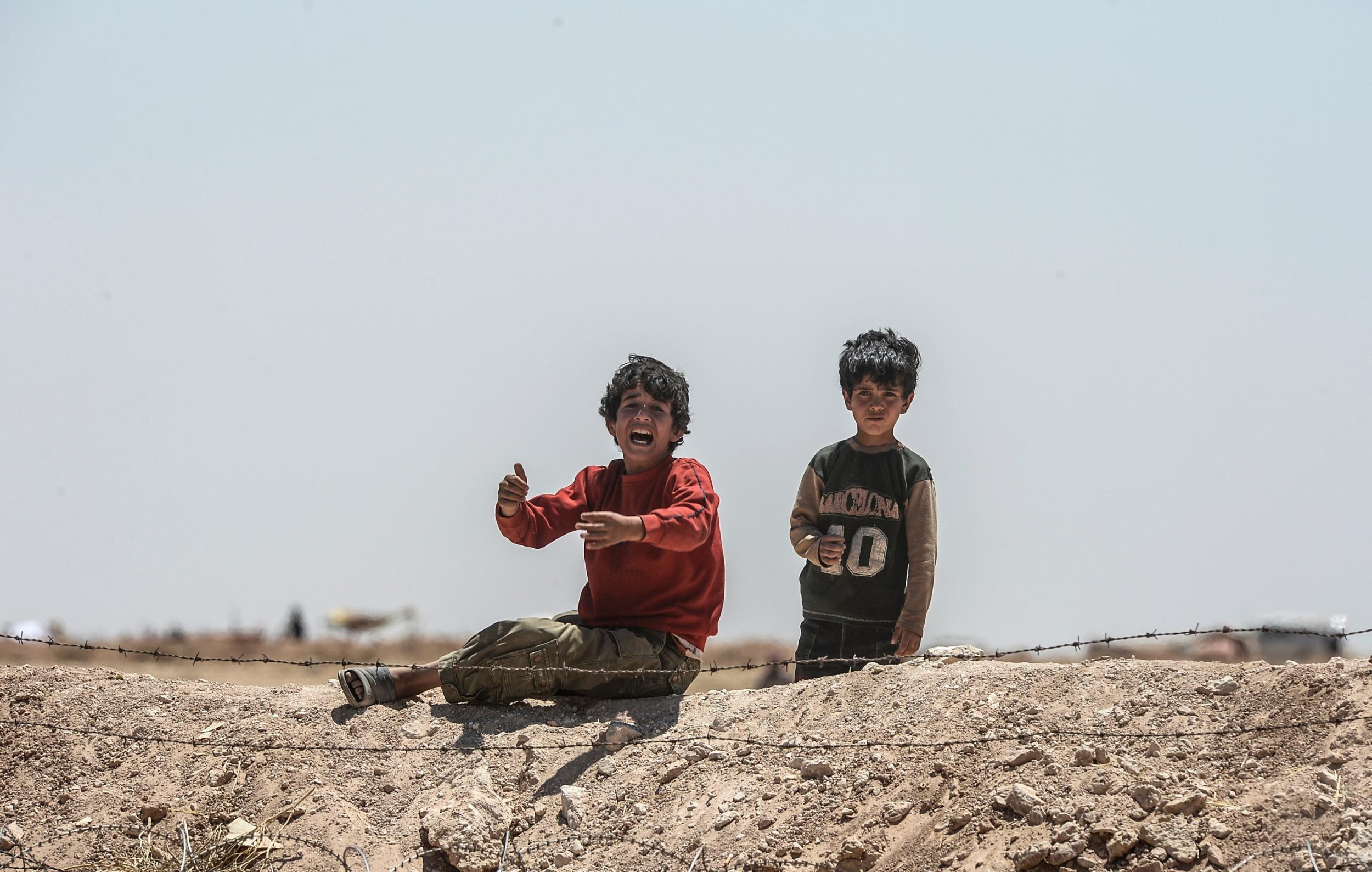UK to take in up to 3,000 vulnerable child refugees, says Home Office
Children who have already reached Europe are excluded from the scheme, which targets refugee camps in the Middle East and North Africa

The UK is to take in up to 3,000 more child refugees after months of calls to help the youngest and most vulnerable migrants risking their lives to reach safety.
The Government hailed the programme, which will come on top of a previous pledge to welcome 20,000 Syrians, as one of the world's largest resettlement programme for children on Thursday.
A spokesperson for the Home Office said the new scheme would see “at risk” children from the Middle East and North Africa selected based on advice from the United Nations High Commissioner for Refugees (UNHCR).
Several hundred children are due to be resettled over the next year, with the upper threshold of 3,000 due to be reached by the next general election in 2020.
Unaccompanied children are expected to be targeted but the figure includes adult relatives of some accompanied minors, who the Home Office said would be chosen in cases “where the UNHCR deems resettlement is in the best interests of the child”.
“On the UNHCR’s recommendation, the scheme will not solely target unaccompanied children, but will also extend to vulnerable ‘children at risk’, such as those threatened with child labour, child marriage and other forms of abuse or exploitation,” a spokesperson said.
Unlike previous British and European initiatives, the scheme is open to refugees of all nationalities, but it excludes those who have already reached Europe.
The caveat will come as a disappointment to charities and MPs who have been campaigning for months for the UK to take in children who have already risked their lives in boat crossings to reach the continent.
MPs on the International Development Committee (IDC) approved the move earlier this year following warnings from humanitarian organisations that thousands of unaccompanied children were left vulnerable to exploitation and violence while living in appalling conditions.
An amendment to the Immigration Bill to let 3,000 refugee children already in Europe come to Britain was adopted in the House of Lords last month.
The changes are due to be considered by the House of Commons on Monday.
Save the Children said 3,000 unaccompanied minors would represent Britain’s “fair share” of more than 26,000 estimated to have entered Europe.
The Refugee Council council said the latest plan was "not good enough" when borders remain closed to refugees and drownings continue in the Mediterranean and Aegean seas.
Maurice Wren, the charity's chief executive, said: “This announcement is life-changing, if not life-saving news for the small group of children and their families who will benefit.
“However, it’s also grim news for the majority of other refugees who are desperately trying to escape conflict and persecution who the Government is try to contain in Turkey and other, poorer countries.
“It’s not good enough to offer a lifeline to one group of refugees while colluding to close off the escape routes of everyone else -all refugees need to be able to reach a place of safety."

James Brokenshire, the immigration minister, said the Government was committed to helping vulnerable children who had been “unjustly impacted” by the humanitarian crisis.
“We have always been clear that the vast majority of vulnerable children are better off remaining in host countries in the region so they can be reunited with surviving family members,” he added.
“However, there are exceptional circumstances in which it is in a child’s best interests to be resettled in the UK.
“We have engaged with a number of NGOs, including the UNHCR on the best way to provide protection to refugee children and ensure their welfare and safety remain at the heart of every decision made.”
The inclusion of refugee camps in North Africa is notable, as the region is the departure point for refugees fleeing war and persecution in Nigeria, Gambia, Senegal, Mali and other African nations who have been excluded by previous schemes.
Gonzalo Vargas Llosa, the UNHCR’s representative to the UK, welcomed the programme, which comes as refugees continue to be detained and deported from Greece, where the British Government is supporting the controversial EU-Turkey migration agreement.
The UK is offering an extra 75 staff to help with processing and administration in detention centres and has also launched a £10 million Refugee Children Fund to support the UN and humanitarian organisations.
Join our commenting forum
Join thought-provoking conversations, follow other Independent readers and see their replies
Comments